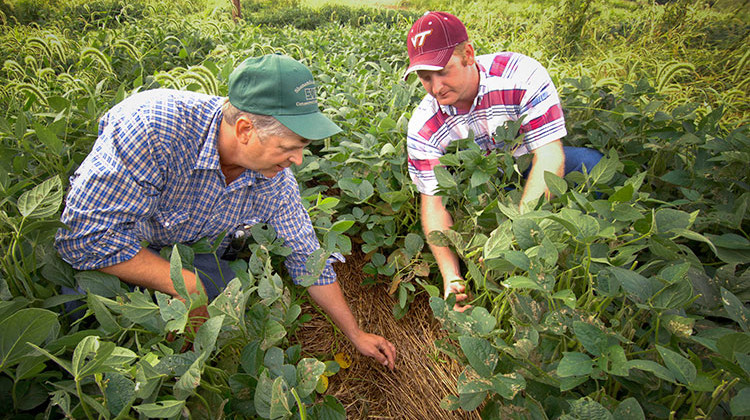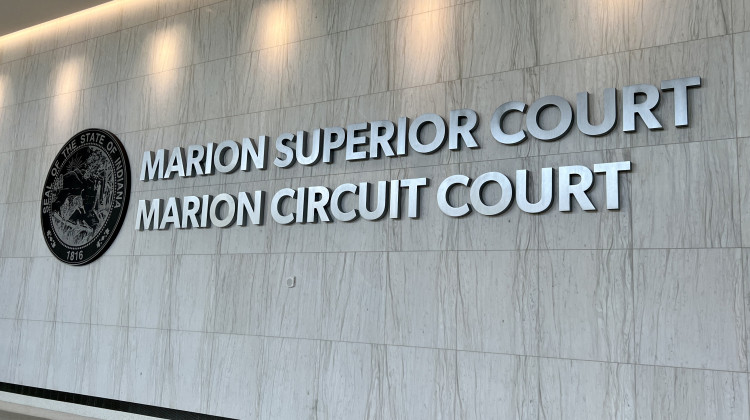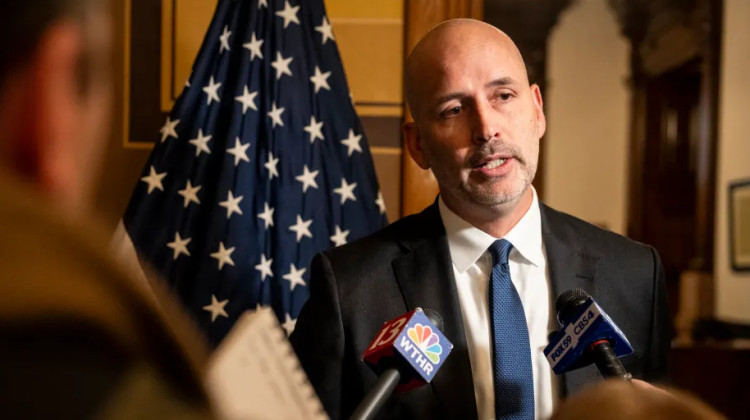
Farmers in Rockingham County, Virginia check the results of no-till farming in their fields in 2008, as part of their participation in a U.S. Department of Agriculture program.
Bob Nichols/USDAThe 2018 Farm Bill President Donald Trump signed on Thursday keeps many conservation programs intact and increases funding available for farm conservation in the Great Lakes region.
The new Farm Bill tripled the amount that goes to the Regional Conservation Partnership Program to $300 million. The partnership helps farmers in areas like the Great Lakes who want to improve their soil and prevent nutrients from running off their land and polluting waterways.
"This boost of investment is a real win, not just for farmers but for the Great Lakes and water quality," says Jordan Lubetkin, the communications director for the environmental group, the Healing Our Waters-Great Lakes Coalition. "So we're really happy to see that increase."
Lubetkin says the conservation program encourages farmers to do what they want to do - be good stewards of the land. He says hopefully this funding boost will allow more to participate.
"There are always farmers, unfortunately, who are turned away from the program. So while the program is voluntary, there really is a large appetite among farmers to take part in these," Lubetkin says.
The Farm Bill is the biggest source of funding for conservation on private land in the United States' budget. We couldn't reach the Indiana Farm Bureau for comment.
Indiana Environmental reporting is supported by the Environmental Resilience Institute, an Indiana University Grand Challenge project developing Indiana-specific projections and informed responses to problems of environmental change.
 DONATE
DONATE







 Support WFYI. We can't do it without you.
Support WFYI. We can't do it without you.